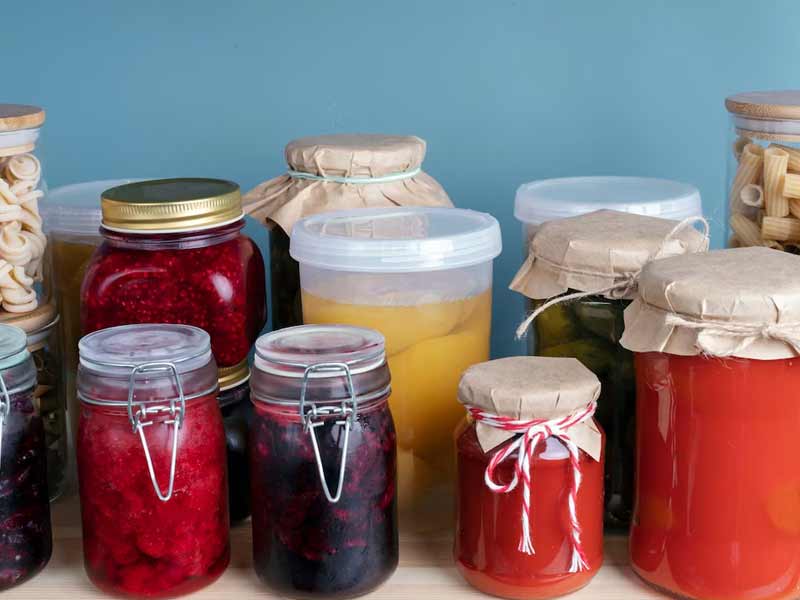Canning food has been a time-honored practice that offers a multitude of benefits (Benefits of Canning). It allows us to preserve the flavors and goodness of fresh produce, ensuring that we can enjoy them long after the harvest season has passed. In this article, we will explore the various benefits of canning and why it is a worthwhile endeavor for any home cook or food enthusiast.
What is Canning?
Canning is a method of food preservation that involves sealing food in airtight containers, such as jars, to create a sterile environment that prevents the growth of bacteria, yeasts, and molds. The process typically involves heating the filled jars to kill any microorganisms, thereby extending the shelf life of the food.
Historical Significance of Canning
Canning has a rich historical significance and has played a crucial role in revolutionizing the way we preserve and consume food. The technique of canning was developed in the early 19th century by a French inventor named Nicolas Appert. His discovery of the heat treatment and sealing of food in glass jars led to the birth of modern canning. This breakthrough not only provided a means to preserve food for longer periods but also contributed to advancements in food safety and nutrition.
Health and Nutritional Benefits
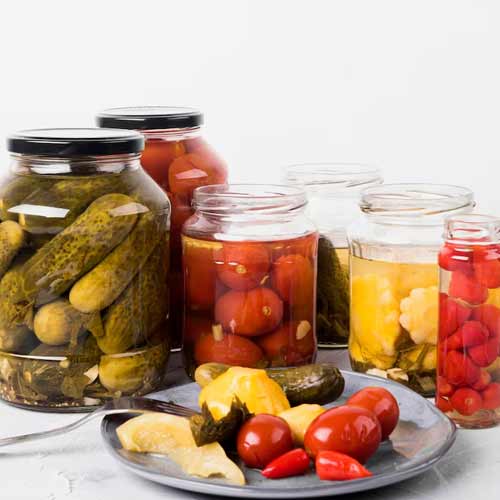
One of the primary benefits of canning is the retention of essential nutrients found in fresh produce. Fruits and vegetables that are canned at their peak ripeness lock in their nutritional value. Vitamins, minerals, and antioxidants present in the raw ingredients are preserved, allowing you to enjoy the health benefits even when the produce is out of season.
Canning also allows you to control the amount of salt, sugar, and preservatives in your preserved foods. You can customize recipes to suit your dietary needs, making it an excellent option for individuals with specific health requirements or dietary restrictions.
Extended Shelf Life and Seasonal Availability
By canning food, you can extend its shelf life significantly (Benefits of Canning). Properly canned foods can last for up to a year or even longer, depending on the type of food and storage conditions. This extended shelf life allows you to enjoy the flavors of seasonal produce throughout the year, regardless of their natural availability. You can learn Troubleshooting Canning.
For example, if you have an abundant harvest of tomatoes during the summer, canning them into jars of flavorful tomato sauce or diced tomatoes ensures that you can savor the taste of summer well into the colder months. Similarly, preserving fruits like peaches, berries, and apples allows you to enjoy their vibrant flavors during the off-season.
Cost Savings and Reduced Food Waste
Canning can also lead to significant cost savings. When produce is in season, it is often more abundant and less expensive. By purchasing fruits and vegetables in bulk and canning them, you can take advantage of lower prices and save money in the long run. Canning also provides a practical solution for utilizing excess produce from your garden or taking advantage of sales and promotions at farmers’ markets.
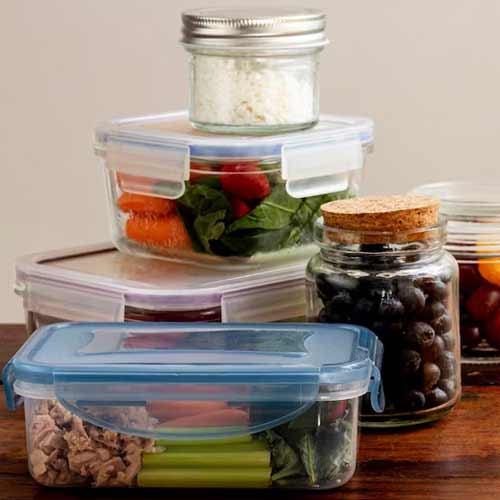
Furthermore, canning helps reduce food waste. Instead of letting fruits and vegetables spoil and go to waste, you can preserve them through canning. This not only saves money but also contributes to a more sustainable and environmentally-friendly lifestyle.
Customization and Control over Ingredients
When canning your own food, you have complete control over the ingredients used in the process (Benefits of Canning). This level of customization allows you to adapt recipes to suit your taste preferences, dietary needs, and any food allergies or sensitivities. You can adjust the amount of sugar, salt, or spices according to your liking, ensuring that the final product aligns with your flavor preferences and dietary requirements.
Additionally, canning provides an opportunity to experiment with unique flavor combinations and create personalized jams, jellies, and pickles. You can add herbs, spices, or even a touch of heat to create signature preserves that reflect your culinary creativity.
Convenience and Meal Preparation
Canned foods offer convenience and simplify meal preparation (Benefits of Canning). Having a well-stocked pantry of canned goods provides you with a wide range of ingredients that are ready to use at a moment’s notice. Whether it’s a quick and hearty tomato sauce for pasta or a jar of pickled vegetables to accompany a sandwich, canned foods can save valuable time in the kitchen.
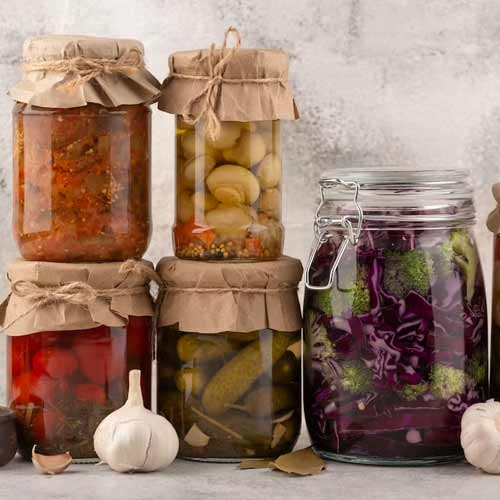
Canning also allows you to prepare larger batches of meals or ingredients in advance. By canning soups, stews, or sauces, you can create a ready-to-eat meal with minimal effort. This can be particularly beneficial during busy weekdays or when you need to whip up a delicious meal in a hurry. This is another Benefits of Canning.
Conclusion for Benefits of Canning
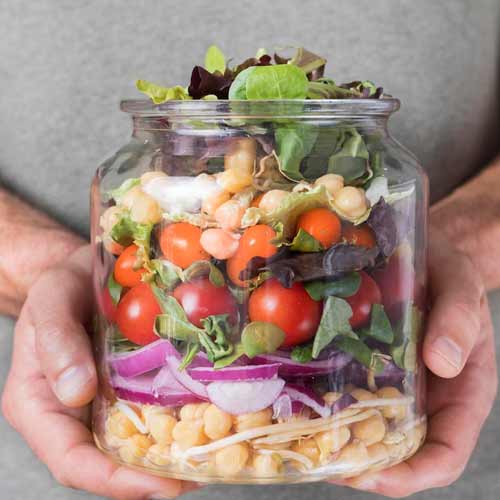
Canning food is a rewarding and practical practice that offers numerous benefits (Benefits of Canning). From preserving the nutritional value of fresh produce to extending the availability of seasonal flavors, canning allows us to enjoy the taste of homemade goodness throughout the year. It empowers us with control over ingredients, reduces food waste, and provides convenience in meal preparation. By embracing the art of canning, we embark on a journey of flavor, sustainability, and culinary creativity.
FAQs (Benefits of Canning)
- Is canning safe for preserving all types of food?
- While canning is suitable for many types of food, there are certain foods, such as low-acid vegetables and meats, that require pressure canning to ensure safety. It’s essential to follow proper canning guidelines and recipes for specific foods.
- How long can home-canned foods be stored?
- Home-canned foods can be safely stored for up to one year or longer if stored in cool, dark conditions. It’s important to check for any signs of spoilage before consuming canned goods.
- Can I reuse canning jars and lids?
- Jars can be reused as long as they are in good condition with no cracks or chips. However, it’s necessary to use new lids for each canning session to ensure a proper seal.
- What are the signs of spoilage in canned foods?
- Signs of spoilage in canned foods include bulging lids, leaks, mold growth, off-putting odors, or any unusual changes in color, texture, or taste. If any of these signs are present, it’s best to discard the jar.
- Can I adjust the sugar or salt content in canned recipes?
- Yes, you can adjust the sugar or salt content in canned recipes according to your taste preferences or dietary needs. However, it’s important to maintain the overall balance and safety of the recipe by following tested canning guidelines.
We proudly present: 1TouchFood, a website specifically designed for online cooking education. Our platform offers a diverse range of culinary tutorials, aimed at teaching aspiring chefs and cooking enthusiasts the art of cooking from the comfort of their own homes. Whether you’re a beginner or an experienced cook looking to expand your culinary repertoire, 1TouchFood provides step-by-step video lessons, interactive recipes, and expert tips to enhance your cooking skills.
Our dedicated team of professional chefs and culinary experts have meticulously crafted each lesson to ensure a seamless and immersive learning experience. Join us on 1TouchFood and unlock your potential in the kitchen as you embark on a culinary journey filled with flavors, techniques, and newfound inspiration.
Please follow us on linkedin. You can learn all best canadian food recipes you can check our Culinary 1TouchFood Youtube and Telegram 1TouchFood page. Don’t forget Fighting Obesity Magazine and Radio Cooking.

